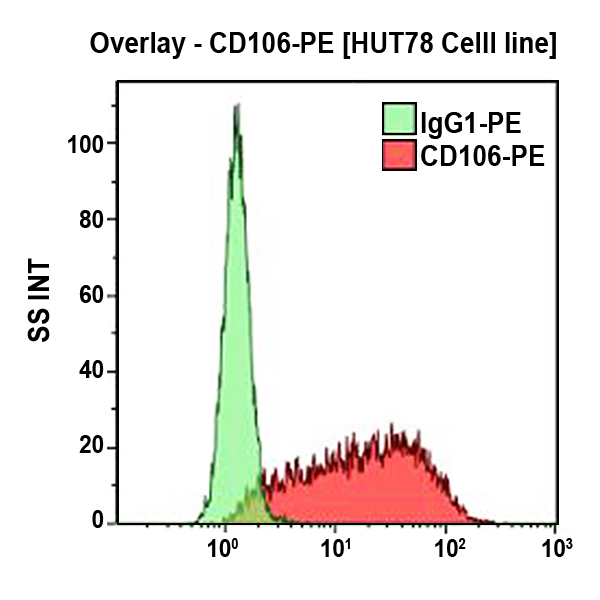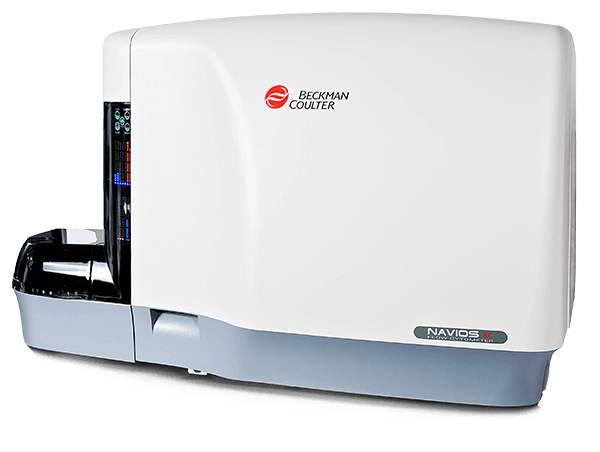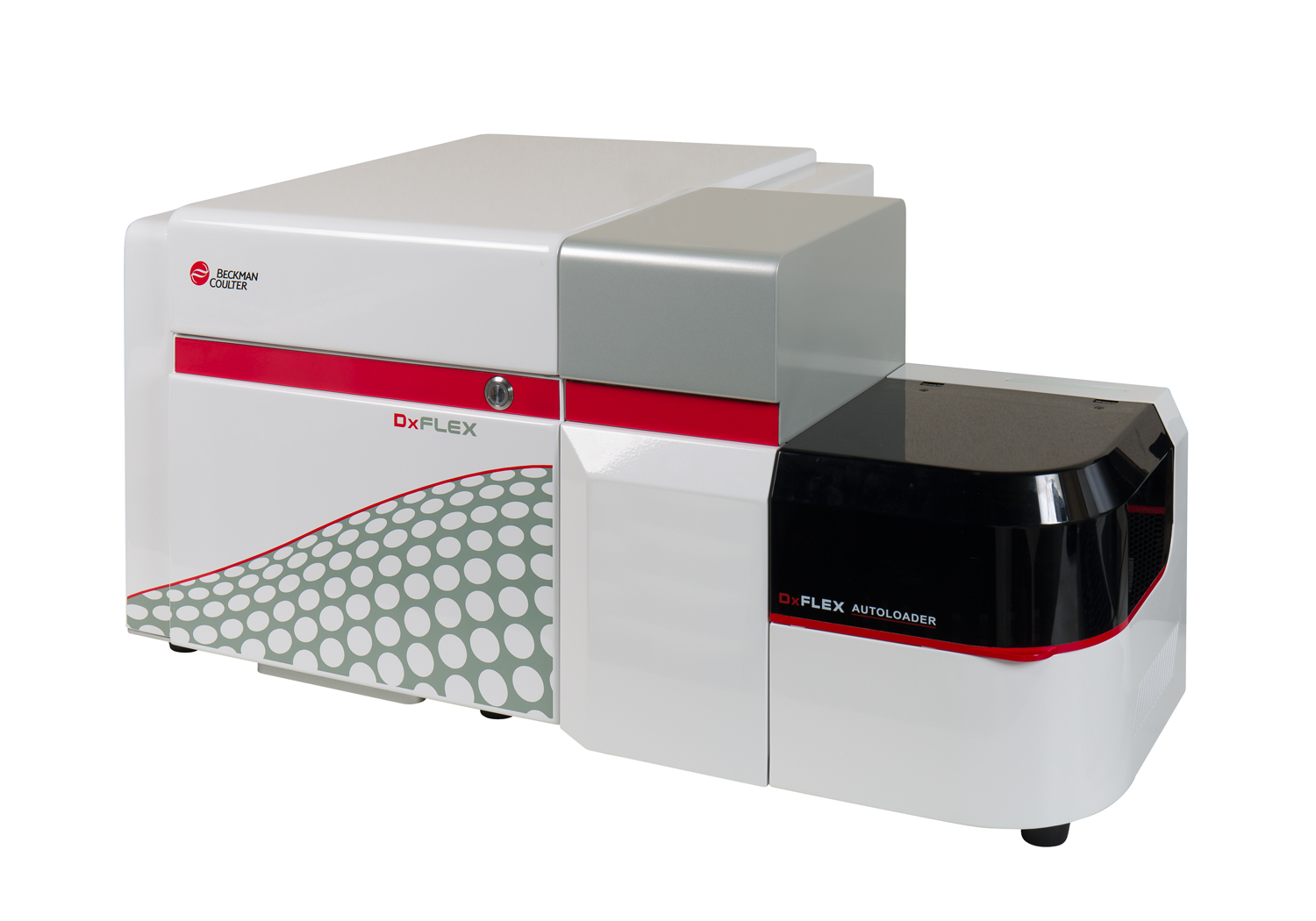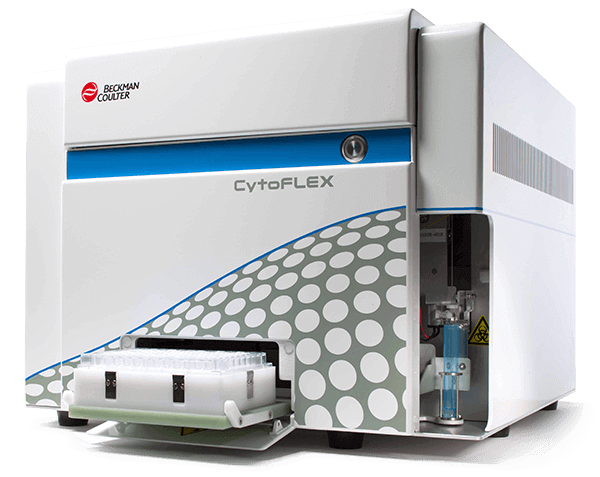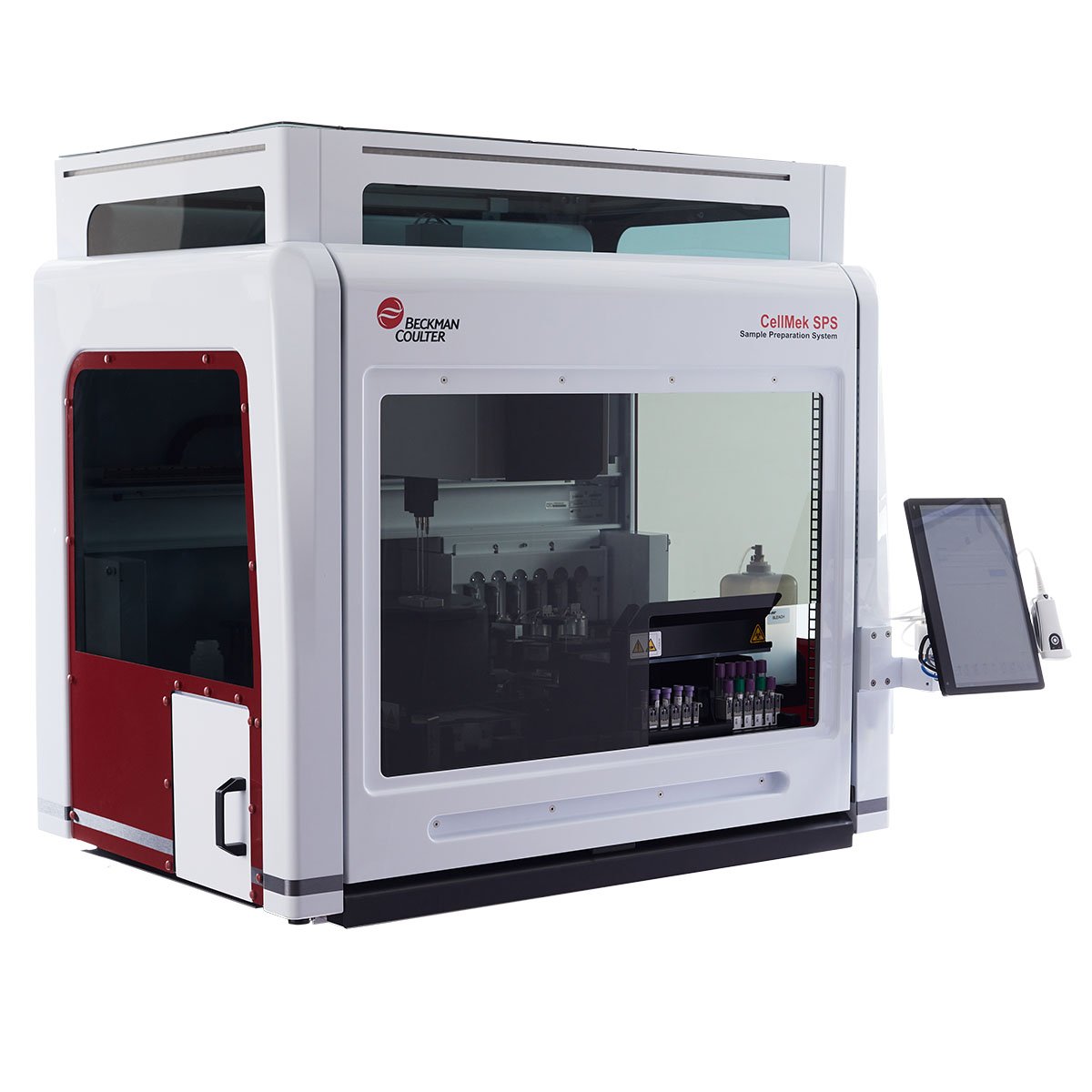CD106 Antibodies
The CD106 antigen, also known as Vascular Cell Adhesion Molecule-1 (VCAM-1), is an adhesion molecule which binds to integrin α4/β1 (VLA‑4) and integrin α4/β7 on lymphocytes. It is a 110 kDa cell surface sialoglycoprotein belonging to the immunoglobulin superfamily. CD106 contains 7 Ig-like C2-type (immunoglobulin-like) domains. CD106 antigen is present on activated endothelial cells, tissue macrophages, dendritic cells and bone marrow fibroblasts. It is involved in the adhesion of lymphocytes, monocytes and eosinophils to activated endothelium. Recent studies shown that CD106 identifies a unique subpopulation of Mesenchymal Stem Cells (MSCs) with powerful immunosuppressive activity.
| Clone: 1G11 | Isotype: IgG1 Mouse |
| The 1G11 antibody inhibits T lymphocyte adhesion to TNF-stimulated endothelial cells. | |

